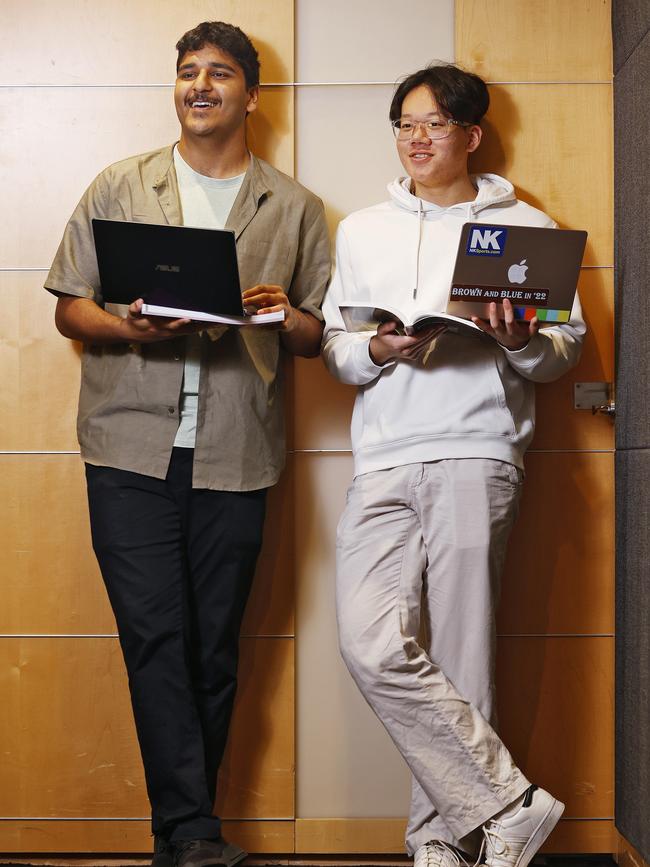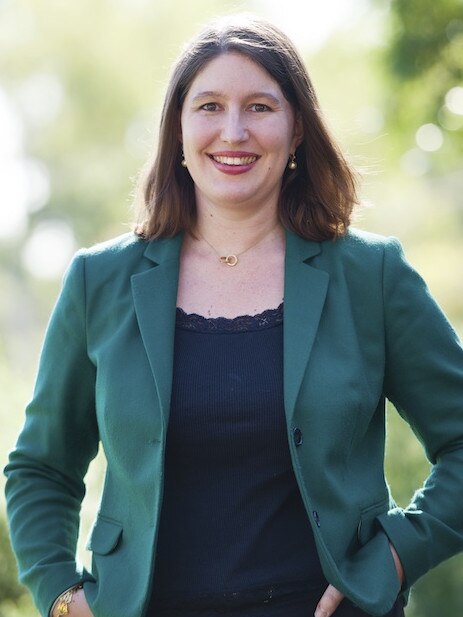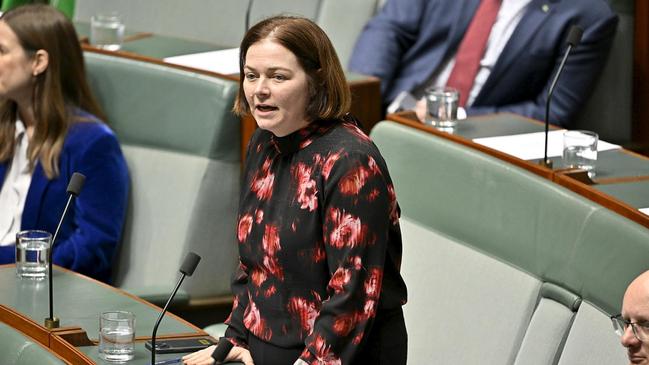Australian students’ new AI tutors revealed
As the federal government investigates the use of artificial intelligence in classrooms, Aussie students are already trialling AI tutors. See how it works.
Education
Don't miss out on the headlines from Education. Followed categories will be added to My News.
Hundreds of schools across the country are trialling artificial intelligence tutors in the classroom, despite ongoing investigations into the ethical challenges of the controversial technology.
A federal inquiry into the use of AI in schools is exploring a long list of issues, including concerns over children’s privacy, how to stop kids using it to cheat and whether it could even undermine the authority of teachers.
While the government is still playing catch up, we can reveal almost 200 schools nationwide are trialling the new AI version of Mathspace, with tutor Milo, in the form of a puppy dog cartoon, being described as a far more patient educator than its human equivalent.
Watch the video above to see how it works.

There’s also no marking for teachers, with children getting real time feedback from Milo.
The generative AI, which uses ChatGPT4, learns from the child’s responses and tailors the questions to their needs.
It is like having “30 teacher assistants in a classroom,” Mathspace CEO Mohamad Jebara said.
“Nothing replaces a human, but Milo has infinite patience,” he said.
“If a question is too hard, they’ll get an easier one. If it is too easy they get a harder one.
“And if you need help you don’t have to put your hand up in front of 30 students. Kids are more comfortable asking Milo for help.”
Meanwhile, an AI operated HSC revision ‘tutor’ called Zookal, which comes with a gender-neutral astronaut as the face of its brand, launched in NSW and Victoria this week.

It will be rolled out in Queensland and South Australia shortly.
Costing $20 a month, it’s predicted to be a serious disrupter to Australia’s $1 billion tutoring industry.
CEO and co-founder of Zookal Ahmed Haider said his generative AI model can generate up to 10,000 questions per week and covers 37 subjects, with more coming.
“It’s quite different from Chat GPT, it’s impossible to abuse it to get nefarious content,” Mr Haider said.
Mr Jebara said safety was a priority and any inappropriate conversations were flagged to teachers, such as if a student told its AI tutor they were feeling suicidal.
Both Zookal and Mathspace said their privacy policies were strict and they did not sell information to third parties. Their AI ‘tutors’ were also pretty accurate as they worked off curriculum content.
Minister for Education Jason Clare said AI, like the calculator or the internet before, “is not going away”.
“How do we make sure that what a young person types into ChatGPT today doesn’t spit back an ad targeted at them on Tik Tok tomorrow?” Mr Clare said.
“How do we make sure that young people don’t use it to get marks they don’t deserve?”

Australia’s Human Rights Commissioner Lorraine Findlay, who is appearing before the House Standing Committee on Employment, Education and Training inquiry into AI next week, said the technology provided “very large benefits, but also significant risks”.
One of her concerns is around equity of access, so some students don’t get left behind.
Sydney Boys High School student Subhan Mustafa, 17, is revising for his HSC exams with the help of Zookal.
When he wrote something inappropriate he was effectively “told off” by his AI tutor.
Subhan said the best thing about it was getting real-time feedback, including a mark and recommendations for improvements.
MP Lisa Chesters, chairwoman of the inquiry said the benefits of AI needed to be balanced with safeguards.
“Everybody is playing catch up,” she said. “It’s a new world and whether we use it for good or evil is up to us.”

WHAT TEACHERS SAY ABOUT AI TUTOR
Teacher Kelly Hywood has a new ‘colleague’ helping her in the classroom.
His name is Milo and he’s an online generative AI maths tutor.
She’s been trying him out in her Year 7 maths classes for the past term via the platform Mathspace – which has existed for 10 years, but is now using AI technology to interact better with students.
Ms Hywood, who works at Nazareth Catholic College, Adelaide, has noticed the children are more engaged and feel more supported in their learning. They also get immediate feedback.
For her, it means she can spend more time with children needing extra help and the other kids don’t have to hang around waiting to ask her a question.

“It’s like having an extra support person in the room,” Ms Hywood said.
“Students don’t have to stand idle, they can ask Milo.”
She can also analyse the data after the class to see what aspect of the work they may have struggled with and tackle that in the next lesson.
She said safety features are built into the system, so if a child asks a silly question, Milo won’t engage, instead he will reply he doesn’t understand.
But there is a sticking point.
“Really clever students can keep asking the right questions so Milo gives them the answer, instead of doing it themselves,” Ms Hywood said.
“I tell them when we go into a test you don’t have Milo the dog giving you clues or hints.
“Some students rely too heavily on prompts because they want to get 100 per cent. They are scared of making a mistake.
“But when you make a mistake, that’s when you learn.”
So, while Milo is a teacher’s best friend, he’s not perfect. An A-, rather than an A+, according to Ms Hywood.
More Coverage
Originally published as Australian students’ new AI tutors revealed





